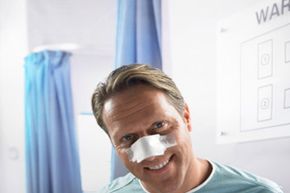We're all beautiful in our own ways, but most of us weren't lucky enough to be graced with the kind of face that would look right at home on the cover of a fashion magazine. No, we all have our little imperfections—a nose that hooks slightly to the right, lips that aren't quite plump enough, breasts that droop instead of perk up. And even those lucky few who were born with the kind of face that could stop traffic sometimes find they don't get the same kind of attention once age and gravity intervene, leaving behind its veil of unsightly wrinkles, lines and spots.
The quest for and desire to re-attain physical perfection--or just the simple need to feel better about ourselves--is what sends more than 1.6 million of us to plastic surgeons annually, at a cost of almost $6.6 billion every year. The majority of plastic surgery seekers come in search of more voluminous or petite breasts (breast augmentation or reduction), trimmer thighs and tummies (liposuction and abdominoplasty), and younger-looking eyes (eyelid surgery) [source: American Society for Aesthetic Plastic Surgery].
Advertisement
Plastic surgery may make us look better, but it won't necessarily make us happier. After the bandages are removed and the physical scars have healed, the emotional wounds that prompted the surgery can still linger. Having an expensive procedure can't cure the insecurity and self-esteem issues that bring people to their plastic surgeon in the first place. Surgery side effects and botched results can lead to temporary, or longer-term sadness. Plastic surgery has even driven some people to the point of suicide.
Why do some people get depressed -- even despondent -- after their plastic surgery? Read on to find out.
Advertisement

